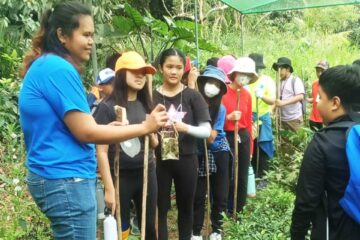When it comes to education, every kid is unique, according to Howard Gardner’s theory of multiple intelligences. Your child will perform well in academics when you engage him/her in activities geared towards his/her style of learning. And if you and your kids are a little bored with the home quarantine, the following activities might help you!
1. Bodily/Kinesthetic

- Build academics-related models with legos or other types of similar materials.
- Create an education-based scavenger hunt, where a subject is the theme for the clues.
- Education-based hide and seek, where you stash pieces of paper containing facts about a specific lesson.
- Perform a skit on historical events.
- Play outdoor games with a focus on academics. While playing lock and key, your child can only give himself/herself the key if he/she names a famous scientist.
- Teach your child to use the parts of his/her body as a learning map.
- Use acting to learn about concepts.
- Your child has to explain what he/she wants to have for breakfast through charades.
2. Existential

- Host an education debate, based on the concept your child has to learn.
- Create puzzle hunts in your household.
- Get your child to verify the phrase, “History repeats itself,” by looking for patterns in the past.
- Pick one book your child has to finish within a given period. Once your kid completes reading it, ask questions on the characters.
- Play a questions game, which involves critical thinking.
- Read a comic strip in a different language. Ask your child to explain what he/she thinks by looking at the pictures before you translate it.
- Teach your child about new cultures and ask him/her to find similarities with your family traditions/customs.
- Write a summary after learning a new theory.
3. Intrapersonal

- Ask your child to rewrite one story, from his/her perspective.
- Create a list of academic goals, along with how your child plans on achieving them.
- List out weaknesses and strengths in education according to your kid. He/she should also write about his/her progress.
- Maintain logs or journals during the academic year.
- Make a scrapbook for special events and memories.
- Practice activities that require learning mindfulness, such as meditation.
- Write an essay on any iconic figure in history.
- Write a piece on every memorable moment this year’s academics.
4. Interpersonal

- Ask your child to form a group with his/her peers for an academics project.
- Create classes covering lessons so that your child can teach his/her peers.
- Make a list of interview questions your child has to ask, to hire new people into his/her imaginary company.
- Pair your child with a partner for learning facts about a specific subject.
- Participate in team-based outdoor games, such as tug of war, relay, and Simon says.
- Produce a show or a skit, with the help of his/her peers.
- Play card or board games which require players to form teams.
- Your child is a politician. How would he/she run a campaign to win the elections?
5. Logical/Mathematical

- Create a secret message using binary code.
- Demonstrate academic science concepts through experiments.
- Identify patterns in the surrounding, such as the household, outdoors, and school.
- Participate in games that involve math such as monopoly, dominoes, and chess.
- Pick everyday objects and improve their design.
- Play games that involve arranging the items in sequence.
- Take part in escape rooms that also allow solo play.
- Your child has to pick a logic or number puzzle and solve it.
6. Musical

- Come up with a song for a concept in maths.
- Create original poetry and recite it in front of the class.
- Identify songs that match the theme of a lesson.
- Listen to music where the lyrics focus on education-based concepts.
- Memorize essential facts in a lesson by listening to music to enhance learning skills.
- Recognize patterns and notes in music.
- Syncing poems in academics with instrumental tracks.
- Spell out words by associating alphabets with different sounds.
7. Naturalist

- Care for an animal in a nearby shelter.
- Create an ecosystem, animal, or plant (can be imaginary) by following specific guidelines.
- Go on hikes.
- Learn about different animals and their habitats.
- Identify and classify all natural objects in the surrounding.
- Show different plants and animals and ask your child to link common features.
- Take care of plants in your household.
- Participate in nature-based activities, such as cleaning up parks nearby.
8. Verbal/Linguistic

- Ask your child to record his/her thoughts, while learning how to solve a problem.
- Create an academics newsletter for the school.
- Come up with a story and tell in front of his/her peers.
- Complete exercises where your child has to fill in the blanks with missing phrases or words.
- Find nicknames for historical figures, which describe their characteristics or features.
- Make an ad for an imaginary or real business.
- Play vocabulary-enhancing games, such as crossword puzzles and Scrabble.
- Think of things or items which have the same characteristics.
9. Visual/Spatial

- Assign color codes to learning materials.
- Create graphs to explain statistics or facts in education.
- Design a map containing the route from your house to the school.
- Make a visual journal, where your child documents his/her life in academics.
- Participate in activities that involve art, such as play dough and painting.
- Pick a shape that your child has to include in his/her drawings.
- Play games that require visual imagery, such as Pictionary.
- Use mind mapping for learning new concepts.

As we know the importance of multiple intelligence, we have plenty of activities in our customized learning program that help children learn essential concepts. Enroll your child today so that he/she gets the skills to excel in academics!
Sources:
- https://aptparenting.com/activities-to-improve-bodily-kinesthetic-intelligence
- https://kids.lovetoknow.com/childrens-education/existential-intelligence-activities-kids
- https://www.thoughtco.com/existential-intelligence-profile-8097
- https://www.scholastic.com/teachers/articles/teaching-content/clip-save-checklist-learning-activities-connect-multiple-intelligences/
- https://www.teachervision.com/multiple-intelligences-activities
- https://www.waterford.org/education/multiple-intelligences-activities/
- https://www.thoughtco.com/multiple-intelligence-activities-1211779
- https://kids.lovetoknow.com/wiki/Classroom_Activities_for_Multiple_Intelligences
Learning Links promotes meaningful education and personal growth to help find what students really want for their careers and lives!
Click on the button below to find out how we make great education possible.



